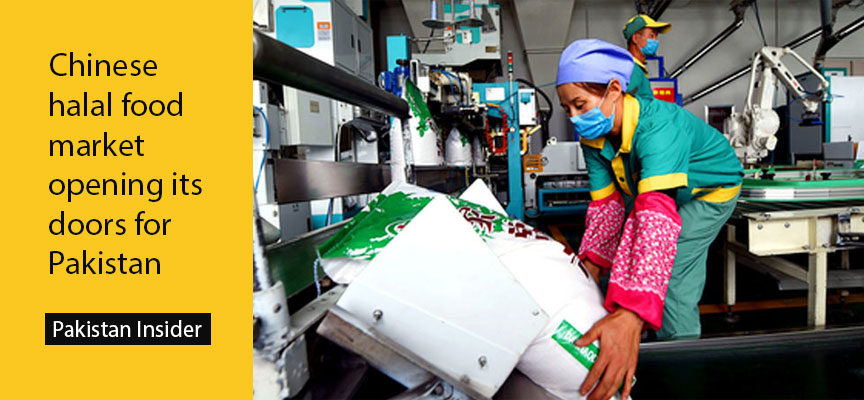In their efforts to foster their trade agreements with many South Asian countries Chinese officials recently announced a lucrative opportunity for many Asian economies to boost their exports to China. Being one the largest consumer markets in the world; China offers tremendous gateways as it has huge local demand which cannot be met with domestic production.
Ye Anping, Director for Asia and African Affairs, Department of International, Ministry of Agriculuture, Peoples Republic of China said that Pakistan can capitalize on this chance as it is the second largest exporter of rice to their country. The friendly neighbor also an option to cater to a sizable Chunk of Chinese halal food market along with other agricultural products such as fruits. He also added that exporters have to consider quality as a priority since their local market is high competitive.
This discussion was held in a group meeting with a panel of Journalists invited to visit China, under the program arranged by Public Diplomacy Association. He showed keen interest in starting a Livestock Agriculture Quarantine Agreement with Pakistan in which they plan to import meat and many other agricultural products from Pakistan.
While answering a question, he emphasized that currently the trade balance between China and Pakistan is more inclined towards the latter is China is primarily importing agri products with a huge pie of 85% comprised of rice worth USD 430 million while exported vegetables and fruits amounting USD 320 million respectively.
However he clarified that despite negative trade balance between the two countries China is currently in no mood to reduce this trade gap rather it plans to expand it in favorable manner as local Chinese demand is soaring at unparalleled heights. Hence it paves way for many Pakistani exporters to enter this profitable market in full swing.
He mentioned that owing to soaring population and constant shrink in cultivable land; China has been the largest importer of agricultural products since last four years as the cost of Chinese agricultural products is relatively high.
He commented that over the last few years this gap is consistently widening. He stated that:
“The import volume of agri products to China was USD 122.6 billion against export volume of USD 72 billion in 2015”
Ye Anping highlighted that other than cotton, another hot commodity which is in huge demand in China these days is soyabean. It is evident as China imported 87 million tonnes of soyabean costing USD 40 billion which accounted for roughly 58% of global soyabean import signifying colossal demand in their local market.
Despite hefty demand, Chinese importers will not compromise of quality and price as he repeatedly stressed that the competition is cut throat. Despite that, he quoted
“No country wants to import products from fixed importers as it is hard to negotiate”
Director for Asian and African Affairs, Department of International Cooperation, Ministry of Agriculture, China, said,
“We want to expand investment in the agricultural sector of the South Asian region as it is hard to do trade without investment in the present day world”
In his concluding remarks he disappointingly suggested that more cooperation is imperative between China and other South Asian countries in the context of foreign agricultural investment, scientific research and agri trade as these areas are highly underutilized. It is the need of the hour as such trade alliances will benefit the region favorably. Investments in the agricultural sector will not only benefit the region in terms of meeting cost effective local demand but also enable economies to improve on many facets.








No comments!
There are no comments yet, but you can be first to comment this article.